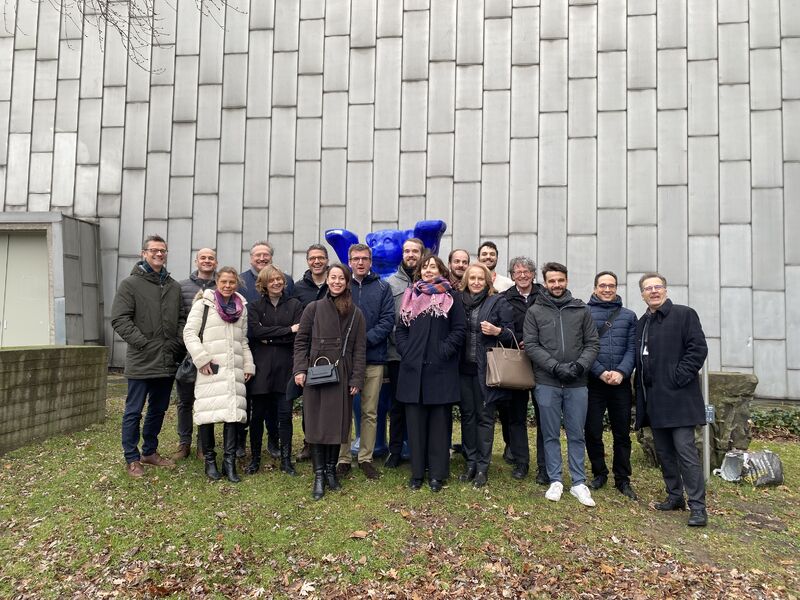Empowering Standardisation through Education in Europe – launch of EDU4Standards project
A brand-new research project funded by the European Union that aims at innovating how standardisation is taught in European Higher Education Institutes
In Europe, standards are a significant driver for economic growth, and have the potential to contribute to successfully achieving the European Green Deal and the New Industrial Strategy for Europe. They are essential for supporting the EU’s interests in global markets and are perceived as important future tools for disseminating its core values.
Nevertheless, EU stakeholders do not fully exploit the opportunities of standardisation: in particular, in the field of education and research, the integration of standardisation has only begun in the last decades – receiving its endorsement both in the European Standardisation Strategy and in the Code of Practice on standardisation released in March 2023. Currently, the number of EU’s standardisation experts is insufficient, and standardisation education is fragmented and underdeveloped at all EU education levels.
Within this context, EDU4Standards aims at tackling this issue by increasing education in standardisation across Europe. In order to reach this goal, the project aims at implementing an all-round education strategy for standardisation, which comprehends the following outputs:
- Develop a teaching concept for standardisation: creating compelling approaches and materials for EU Higher Education.
- Raise awareness through the Academic Standardisation days and events: organising a series of events on standardisation for Higher Education Institutes, reaching 1500 students and 150 teachers.
- Increase higher education courses on standardisation: broaden institutional capacity with more than 200 standardization-skilled teachers, institutions and courses.
- Build a community of standardisation teachers and learners: consolidate the community of educators and students for the future.
- Set up an EU Student standardisation association: establishing a single association on the basis of the existing groups and projects, with more than 100 members.
As assessed by the project coordinator Knut Blind : “The aim is to engage the leading Higher Education Institutes in the EU in standardisation education, but also develop an innovative teaching concept, which can be applied flexibly in different HEIs. In parallel with this teaching concept, other activities such as the Academic Standardisation days and the students’ standardisation association will contribute to empowering standardisation through education in Europe.”
EDU4Standards consortium brings together the key players in education on standardisation in Europe. Coordinated by Fraunhofer-Gesellschaft, the consortium brings together 17 beneficiaries from 11 countries, among which we have 10 Universities, higher education institutes, standardisation bodies and associations, and SMEs.
The project kicked-off in January 2024 in Berlin, hosted by the Technical University of Berlin.
EDU4Standards results and activities will benefit teachers, students and professionals – who will be educated and equipped with standardisation knowledge. The project will empower the role of standardisation both in EU Higher Education Institutes – with courses and educational events – and at the EU level, with the implementation of a EU Standardisation Education roadmap – a document that will collect the main lessons learned and recommendations, for a sustainable continuation of Edu4Standards.eu and its objectives.
For more information on EDU4Standards visit www.edu4standards.eu, follow us on LinkedIN or contact us at info@edu4standards.eu
![]()
Edu4Standards.eu – Education for Standardisation in the EU is an action supported by the European Horizon Europe Programme HORIZON-CL4-2023-HUMAN-01 call, managed by the European Health and Digital Executive Agency (HADEA).
